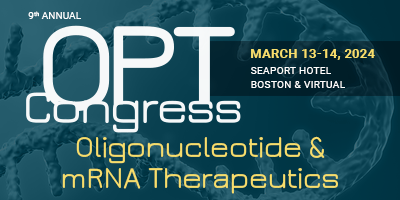演讲者
Speaker Biographies
Filter by:
Vikram Agarwal, PhD, Head of mRNA Platform Design Data Science, mRNA Center of Excellence, Sanofi

Vikram Agarwal completed his Ph.D. in Dr. David Bartel's lab at the Massachusetts Institute of Technology, where he utilized computational approaches to study the principles of microRNA targeting. He completed his post-doctoral research in Dr. Jay Shendure's laboratory at the University of Washington, where he applied deep learning methods and massively parallel reporter assays to investigate the mechanisms of transcriptional gene regulation. Transitioning into industry, Vikram worked at Calico Life Sciences LLC, an Alphabet company whose mission is to better understand the mechanisms underlying human aging. There he applied deep learning methods with Dr. David Kelley to better understand transcriptional and post-transcriptional gene regulation as well as its link to human genetics. He is currently the Head of mRNA Platform Design Data Science at the mRNA Center of Excellence at Sanofi, where his team is applying machine learning and deep learning methods towards the design of enhanced mRNA therapeutics.
Nadim Akhtar, PhD, Senior Principal Scientist, New Modalities, AstraZeneca

Nadim Akhtar, PhD, is a Senior Principal Scientist in the New Modalities and Parenteral Development Department in Pharmaceutical Technology and Development function at AstraZeneca. Nadim has been working for AstraZeneca since 2007. During this time Nadim has worked on both early- and late-stage portfolio supporting development of small molecules and new modalities i.e. oligonucleotides, peptides, polymeric nanoparticles, dendrimers, and mRNA products. Nadim is currently responsible for developing characterisation and control strategies for New Modalities.
Julia Alterman, PhD, Assistant Professor, RNA Therapeutics Institute, University of Massachusetts Medical School

Dr. Julia Alterman is currently an Assistant Professor at the RNA Therapeutics Institute, UMass Chan Medical School, where she focuses on siRNA chemical modification for extra-hepatic delivery. Julia received her PhD from UMass Med where she worked on the development of an oligonucleotide chemical architecture for improved CNS pharmacology. Prior to joining the faculty at UMass Chan Medical School, Julia spent 7 years in positions at Atalanta Therapeutics, Anchor Therapeutics and Resolvyx Pharmaceuticals. She has published many peer-reviewed articles and holds several patents in the fields of oligonucleotide chemical biology and pharmacology.
Gilles Besin, PhD, CSO, Orbital Therapeutics

With more than 15 years of research experience in immunology and vaccines for infectious diseases, oncology, and metabolic disorders, including rare diseases, Dr. Gilles Besin is now the CSO of Orbital Therapeutics. Prior to joining Orbital Therapeutics, Dr. Besin led all discovery research efforts at Affinivax as Head of Discovery. In this role, he led a team to discover and develop vaccine candidates (targeting Staphylococcus, Klebsiella, Pseudomonas, bacteria Clostridium difficile, and more recently SARS CoV-2 vaccine), and support the development of the Streptococcus pneumoniae vaccine pipeline. Previously to Affinivax, Dr. Besin led the Moderna immunology platform and efforts to optimize the mRNA delivery platform and modulate T cell responses in cancer and autoimmune diseases using lipid nanoparticles of mRNA. In addition, Dr. Besin has collaborated on numerous mRNA vaccines against cancer and infectious diseases, some in the clinical phase. Prior to Moderna, Dr. Besin was involved in the delivery of therapeutic nucleic acids and has been involved in the development of mRNA vaccines in collaboration with Sanofi Pasteur and CureVac under the Defense Advanced Research Projects Agency (DARPA).
Jovanka Bogojeski, Senior Director Scale-up & Tech Transfer, Process Sciences, ReciBioPharm
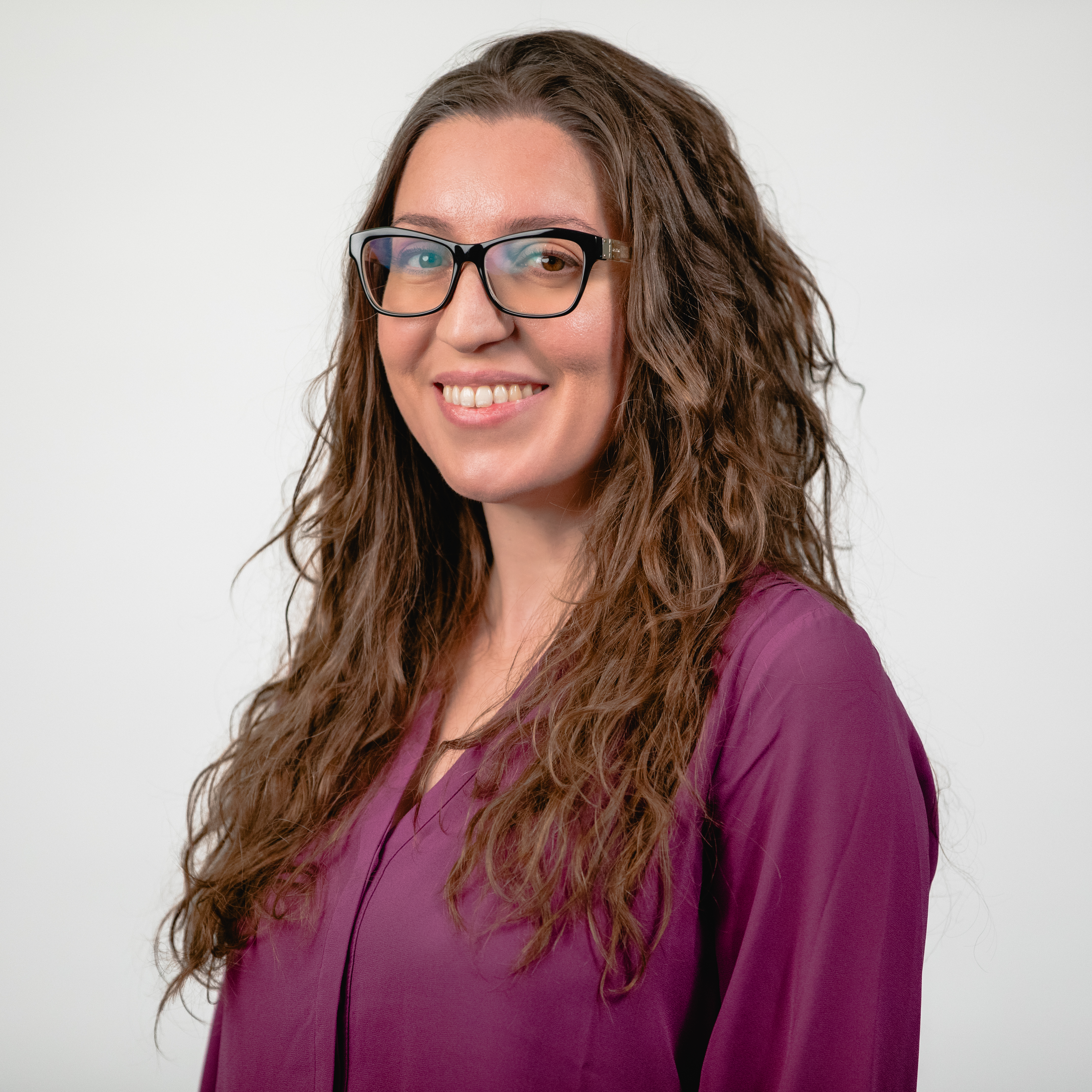
Jovanka has experience leading teams in developing processes for mRNA vaccine production, designing siRNA and ASOs with chemical modifications for increased cellular update and delivery, and leading the tech transfer process to CDMOs. She successfully supported the transfer of controlled and validated processes to GMP manufacture from the perspective of sponsoring companies. At ReciBioPharm, she leads the mRNA process sciences team to guide client and platform projects from optimization to manufacturability.
Mandana Borna, PhD, Senior Scientist, Oligonucleotide Formulation and Drug Product Manufacturing, Biogen

Mandana Borna is currently Senior Scientist in oligonucleotide formulation development and drug product team at Biogen. Mandana and her team lead the drug delivery activities of oligonucleotide product and focus on advancing new technologies to overcome challenges of CNS delivery. She helps develop and implement short-term and long-term drug delivery strategies to support Biogen’s neurologic pipeline of oligonucleotide drugs. Her team identifies promising delivery technologies for oligonucleotide drugs, design feasibility studies, run technical assessment as well as lead project partnership. Mandana holds a PhD degree in Materials Science & Biomedical Engineering from McGill University, and her research is focused on drug delivery and cell therapy. She has been an invited speaker in multiple drug delivery conferences and serves as a reviewer for several journals.
Marvin Caruthers, PhD, Distinguished Professor, University of Colorado
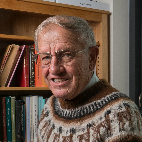
Professor Marvin H. Caruthers research includes nucleic acids chemistry and biochemistry. Approximately 35 years ago, the methodologies that are used today for chemically synthesizing DNA and RNA were developed in his laboratory. His laboratory has also pioneered the synthesis of many new nucleic acid analogs that have found applications in the nucleic acid diagnostic and therapeutic areas. He is the recipient of the National Academy of Sciences Award for Chemistry in Service to Society, the Prelog Medal, the Economists Award in Biotechnology, and the US National Medal of Science. He is also the recipient of The National Academy of Science Award in the Chemical Sciences, The American Chemical Society Award for Creative Invention, The Frantisek Sorm Medal-The Academy of Sciences of the Czech Republic and The Life Time Achievement Award of the Oligonucleotide Therapeutic Society. Dr. Caruthers is an elected member of The US National Academy of Sciences, The American Academy of Arts & Sciences, The National Inventors Hall of Fame, The National Academy of Inventors, and a Corresponding Member of the German Academy of Science Gottingen. One of the co-founders of Amgen and Applied Biosystems, Dr. Caruthers remains active in the Biotechnology arena - most recently as a co-founder of Array BioPharma and miRagen Therapeutics.
Nelson Chau, PhD, Senior Vice President, Platform, Orna Therapeutics

Nelson serves as Senior Vice President of the Platform group at Orna Therapeutics. He is a seasoned biotech veteran with over 15 years of experience focusing on developing RNA-based medicine. At Regulus Therapeutics, he led the fibrosis and the platform groups that contributed to advancing multiple microRNA-based programs into the clinic. Prior to joining Orna Therapeutics, he served as Vice President of Discovery and Translational Research at LogicBio Therapeutics where he was responsible for building out the research team and leading preclinical research of multiple AAV-mediated gene editing programs. The most advanced program, LB-001, is currently being evaluated in pediatric methylmalonic acidemia patients. Nelson received his PhD from the Johns Hopkins University and was a Damon Runyon Fellow at the University of California San Diego. He is an author of over 50 peer-reviewed publications, patents, and patent applications.
Charles Chen, PhD, Senior Scientist, Advanced Drug Delivery, Pharmaceutical Sciences, AstraZeneca Pharmaceuticals, R&D

Dr. Charles Chen is a Senior Scientist at AstraZeneca working on designing and synthesizing novel lipids and focusing on non-viral nucleic acid delivery. Before joining AstraZeneca, Charles started his research journey when he was an undergraduate student and found his passion in drug development. Charles got his PhD in Chemistry at King’s College London under the supervision of Professor Martin Ulmschneider. In 2019, Charles moved to Boston in the US and did a 2-year postdoc training at the Massachusetts Institute of Technology and Massachusetts General Hospital, co-supervised by Professors Timothy Lu and Joanna Yeh. Charles’ combinational approaches have shown promising outcomes in antibiotics and cancer chemotherapy.
Jeffery M. Coller, PhD, Bloomberg Distinguished Professor of RNA Biology and Therapeutics, Johns Hopkins University

Jeff Coller is the Bloomberg Distinguished Professor of RNA Biology and Therapeutics at Johns Hopkins University. His lab has made seminal discoveries in the area of messenger RNA stability and translation. He received his Ph.D. in Cellular and Molecular Biology from the University of Wisconsin and was a postdoctoral fellow in the Howard Hughes Medical Institute at the University of Arizona. Prior to moving to Johns Hopkins University, Dr. Coller served as Director of the RNA Center at Case Western Reserve University where he held the Henry Willson Payne Distinguished Professorship. He studies the very essence of life: translation of the genetic code. His work has led to fundamental shifts in the understanding of gene expression by demonstrating that the genetic code is a major determinant of mRNA fate. He is the Co-founder of Tevard Biosciences. In 2018, Tevard Biosciences was awarded Pfizer’s Golden Ticket award for promising neuroscience startups. His publications have been cited over 6000 times and he currently holds numerous patents for RNA-based therapeutic applications.
Robert Dream, PhD, Managing Director, HDR Co. LLC

Robert Dream is an industry leader with 30+ years of experience, including 20 years of executive leadership in the pharmaceutical and biotechnology industries. He has led projects, improved processes, helped move drug substance and drug products from R&D, clinical, regulatory licensing approvals through operational excellence strategies and leading edge technologies. He is business minded person and has an innovative knowledge and knowhow of manufacturing, logistics, supply chain, risk mitigation and management. He is experienced in therapeutic biotechnology and biological drug substance and drug products manufacturing, with extensive hands-on, senior leadership and executive experience at world-leading organizations. He wrote numerous articles for many journals and publications and lead and presented at many institutions, organizations, and conferences. He is a registered professional engineer and an active member of the ISPE and PDA. He is a member of the editorial advisory Board; Pharmaceutical Processing, Pharmaceutical Manufacturing, Pharmaceutical Technology, Pharmaceutical Engineering, and the INTERPHEX Advisory Council. He is a member and Process Chair of the PDA “Aging Facilities Modernization” Team. He is the Chair of the ISPE GUIDE: “Biopharmaceutical Process Development and Manufacturing”; published 2013, ISPE “Sustainability Handbook”; Published 2015 and numerous other relevant publication to list few.
Ronald Emeson, PhD, Joel G Hardman Chair in Pharmacology, Professor of Biochemistry, Molecular Physiology & Biophysics and Psychiatry & Behavioral Sciences, Vanderbilt University

Ronald Emeson, PhD, serves as the Joel G. Hardman and Mary K. Parr Professor of Pharmacology at the Vanderbilt University School of Medicine. For the last three decades, his research group has focused upon the functional role(s) of adenosine-to-inosine (A-to-I) RNA editing events in transcripts encoding proteins critical for nervous system function including the GluA-2 subunit of the AMPA-subtype of ionotropic glutamate receptor, the alpha3-subunit of the GABA-A receptor, the Kv1.1-subtype of voltage-gated potassium channels, the 2C-subtype of serotonin receptor (5HT2C), calcium-dependent activator protein for secretion 1 (CAPS1), and ADAR2, one of two enzymes responsible for catalyzing A-to-I editing in vertebrates. While his work has significantly advanced our understanding of how RNA editing alters neurotransmitter receptor function, more recent studies in his laboratory have begun to examine the utility of using A-to-I editing as a therapeutic strategy to “repair” genetic mutations at the RNA level which underlie a variety of neurodegenerative and neurodevelopmental disorders.
Kevin Fettes, PhD, Founder & Principal, FTS Pharma Consulting LLC

CMC consultant specializing in CMC, Reg CMC and QA of oligonucleotides. 25 years of experience in the field of oligonucleotides with a range of academic, industry and contract manufacturing experience. Kevin has been working in the oligonucleotides area since starting his Ph.D. at the University of London in 1995. Subsequently he worked for Avecia Biotechnology, now Nitto Denko Avecia for 8 years across both their original Scottish site at Grangemouth and then Milford, Massachusetts. Since 2009 he has held positions as Head of CMC at RXi Pharmaceuticals, Galena Biopharma and Dicerna Pharmaceuticals. In 2016 Kevin founded FTS Pharma Consulting, LLC to primarily assist early-phase oligonucleotide clients with their Technical, Regulatory CMC and Quality Assurance challenges.
Lorenzo Franceschini, PhD, Postdoctoral Researcher, Laboratory of Molecular & Cellular Therapy, Vrije Universiteit Brussel

I obtained a master’s degree in Chemistry and Pharmaceutical Technology at the University of Rome La Sapienza, including a master dissertation at the Chemistry Research Laboratory at the University of Oxford. In 2016 I completed my doctoral degree at the Biochemistry, Molecular and Structural Biology Department of the University of Leuven, followed by a postdoctoral research position at the Laboratory of Molecular and Cellular Therapy, University of Brussels Vrije Universiteit Brussel (VUB). In 2020 Persomed was launched, a spin-off company of the VUB, and I was confirmed as Co-Founder.
Jennifer Franklin, PhD, Executive Director, CMC Regulatory Affairs, Ionis Pharmaceuticals, Inc.
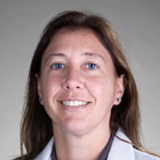
Jenny has worked for Ionis Pharmaceuticals, Inc. in Carlsbad, CA, for 15 years. For the past five, she has been responsible for CMC Regulatory Affairs for Ionis’ late phase/commercial compounds, as well as all development compounds. Prior to that, she was responsible for Quality Assurance oversight of oligonucleotide drug substance manufacturing and testing activities, and associated functions. Before joining Ionis, Jenny worked in Quality Control for Gala Biotech (now Catalent BioPharma) in Middleton, WI. She earned her B.S in Biology and French from the University of Wisconsin.
Robert W. Georgantas, PhD, President, CTO, Providence Therapeutics

Dr. Robert W Georgantas III PhD is the President and Chief Biotechnology Officer at Providence Therapeutics, a private mRNA medicines company with robust oncology and infectious disease therapeutics pipelines and end-to-end capabilities from target discovery to next generation mRNA LNP formulation to pandemic scale manufacturing capabilities. Dr. Georgantas was previously CSO at Biodesix, a diagnostic and AI target discovery company that he helped take public in 2020. While at Biodesix, he drove the scientific strategy of the company, implemented new proteomics and genomics technologies, and implemented substantial improvements to the company’s Diagnostic Cortex AI platform. Prior to that he was Director of Immunology Programs at Abbvie including both autoimmunity and immuno-oncology. While at Abbvie, Dr. Georgantas build the translational science function for Immunology, was a founder of the Genomics Research Center of Excellence, and successfully implemented AI programs for selection of drug adjacent diseases. While a scientist in the Department of Translational Science at Medimmune/AstraZeneca, Dr Georgantas focused on the discovery of novel therapeutics for immuno-oncology and autoimmune applications, as well as the translational biology of different therapeutics. Before moving to industry and biotech, Dr. Georgantas spent 15 years at the Johns Hopkins School of Medicine where he received his doctorate in pharmacology and molecular medicine studying cancer vaccines, did an NIH sponsored fellowship in stem cell biology related to cancer development, and eventually joined the faculty in the Department of Oncology.
Paloma Giangrande, PhD, Independent Consultant
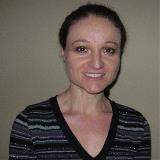
Dr. Giangrande was until recently the Vice President of Biology at Wave Life Sciences in Cambridge, MA and an Adjunct Professor of Internal Medicine at the University of Iowa. She obtained her Bachelor of Science degree in Biochemistry at Wheaton College, Norton, MA in 1994 and her PhD in Pharmacology and Cancer Biology at Duke University, Durham, NC in 1999. Her career has been dedicated to the investigation and development of RNA-based therapeutic approaches (including RNA aptamers, siRNAs, mRNA, RNA editing) for cancer, cardiovascular disease, rare diseases, and critical illness. As a consequence, Dr. Giangrande developed a deep understanding of these technologies, diseases, and associated disease mechanisms. She is an internationally recognized expert in oligonucleotide therapeutics and delivery. Towards this end, she was the first to demonstrate that RNA ligands (aptamers) can be used to deliver therapeutic siRNAs to target cells. Her 70+ publications and 9+ patents are a testament to this body of work and her commitment to the development of novel RNA-based therapies for many diseases.
Wendy Gilbert, PhD, Professor, Molecular Biophysics & Biochemistry, Yale University

Wendy Gilbert is a Professor of Molecular Biophysics and Biochemistry. Her work focuses on regulatory elements in messenger RNA that control the cellular expression of the information stored in the genetic code. She earned her PhD at UCSF with Christine Guthrie, studying mRNA export and being fascinated by the exquisite mechanisms that couple export-competence to completion of RNA processing. As a postdoc in Jennifer Doudna’s lab at UC Berkeley, she uncovered a non-canonical mechanism of translation initiation. Her lab’s current work ranges widely across RNA biology with the unifying theme of elucidating the molecular mechanisms of RNA regulatory elements controlling mRNA biogenesis, translation, and decay. Most recently, this has been in the area of RNA base modification. Notable awards include the RNA Society’s Early Career Award (2017) for her “paradigm-altering contributions to the field of post-transcriptional gene regulation” and the RNA Society Award for Excellence in Inclusive Leadership (2023) for her efforts to promote the training and professional development of underrepresented scientists.
Iris Grossman, PhD, Chief Therapeutics Officer, R&D, Eleven Therapeutics US, Inc.

On the leading edge of Personalized Medicine, Big Data Analytics and BioPharmaceutical R&D for >20 years, Iris Grossman, PhD is the Chief Therapeutics Officer of Eleven Therapeutics, where she oversees the strategy and development of novel RNA-based therapeutics discovered by the company’s platform, which uniquely marries between combinatorial chemistry and A.I. to decipher the structure-activity relationship of durable, effective and safe respiratory and metabolic therapeutics. Prior to joining Eleven, Iris served in Chief Scientific Officer roles (CAMP4, Amide Technologies (acting)) and consulted for top VCs in the Boston area. Prior to that, Iris held leadership positions in, or consulted for Big Pharma (GSK, Eli Lily, Takeda and Teva - where she was VP, Head of Early-Stage Development). She specializes in leveraging multi-dimensional genomic insights and eHealth as engines of therapeutic discovery, development and lifecycle management across a wide range of modalities and therapeutic areas. Dr. Grossman serves as Chairman of the Pharma/Life Sciences SAB at BC Platforms, and as Strategic Founding Advisor at Modulight.bio, and CGRP Diagnostics. She was a pioneering Steering Committee member of Tipa (Maccabi biobank) and is an active member and strategic advisor to the 8400 Healthcare network. Iris has championed various multi-year, multi-million dollars partnerships and collaborations, as well as won multiple awards, throughout her career, including the prestigious Top 40 under 40 award (2013) by Globes - Israel’s business arena, and various recognition awards for contributions to R&D programs and cutting edge science. Dr. Grossman earned her B.Sc. in medicine at the Technion, and a Ph.D. in medicine, population genomics and pharmacogenetics from the Technion, co-mentored with the Weizmann Institute. Her post-doc fellowship in Personalized Medicine and Population Genomics was completed at Duke university. She recently completed a Harvard Business School Executive HealthTech program.
May Guo, Chief Commercial Officer, Areterna
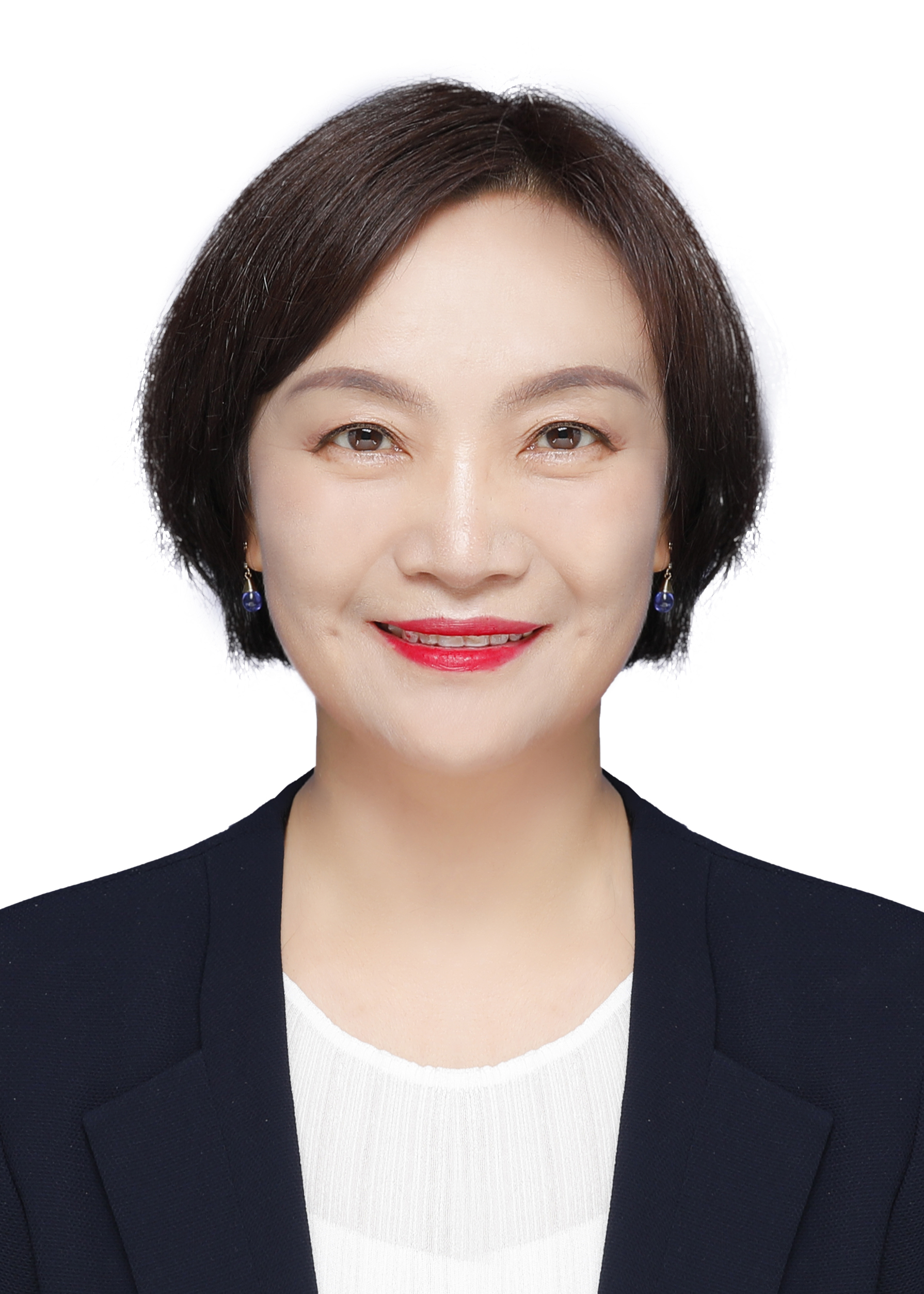
May Guo is a successful commercial leader with deep understanding of science and drug discovery, who is passionate about new technologies and discoveries, particularly in the area of treating cancer and rare diseases. She has extensive experience in DNA/RNA based therapies (siRNA, CRISPR, mRNA) having been in the industry for more than 20 years. She has a B.S. in Chemistry from Peking University and a M.B.A from Georgetown University.
Sushma Gurumurthy, PhD, Director, Oncology Research, Moderna, Inc.

Sushma Gurumurthy, PhD is a distinguished scientist with over 15 years of experience in oncology research and mRNA therapeutics. Since joining Moderna in 2015, Sushma has led the preclinical discovery and development of mRNA therapeutics for application in oncology. Prior to Moderna, she led different oncology early-stage discovery programs at the Belfer Institute in Dana Farber Cancer Institute. She received her PhD from the University of Kentucky and completed her postdoctoral training at the Massachusetts General Hospital Cancer Center and Harvard Medical School.
Xiao Shelley Hu, PhD, Vice President, Head of DMPK and Clinical Pharmacology, Wave Life Sciences
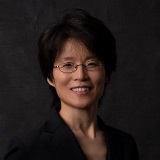
Dr. Xiao Shelley Hu, PhD, is a Vice President at Wave Life Sciences in Boston, currently the head of the DMPK and Clinical Pharmacology department. Her group is responsible for ADME, PK/PD, and Pharmacometric studies in preclinical and clinical stages in neuromuscular, CNS, and hepatic diseases. Prior to joining Wave Life Sciences, she was a Director at Akebia Therapeutics in Boston, leading the Clinical Pharmacology, Pharmacometrics and Bioanalytical function. Shelley joined Akebia from Biogen, where her responsibility evolved from pre-clinical DMPK to Clinical Pharmacology, and later to Pharmacometrics for both small molecules and large molecules from discovery to post-market in Neurology, Rheumatology, Oncology, and Immunology. Shelley received her PhD in Pharmaceutical Sciences from the Ohio State University, MS in Pharmaceutical Sciences from Ohio State University, MS in Environmental Chemistry from Chinese Academy of Sciences, and BS in Pharmaceutical Sciences from Peking University Health Science Center. She has fourteen publications in peer-reviewed journals and one book chapter and serves as reviewers for various journals.
Shanhu Hu, PhD, Director, Platform Biology, Korro Bio Inc.

Shanhu Hu, PhD is a Director, Head of High-Throughput Screening team at Korro Bio. Korro Bio focuses on the discovery and development of oligo-directed precision medicine that has the promise to address a myriad of previously undruggable targets. Korro’s platform OPERA leverages endogenous ADAR (Adenosine Deaminase Acting on RNA) to make targeted edits to a single RNA base, leading to reversible functional protein changes for targeted treatment of genetic diseases. Shanhu leads the HTS team to contribute to platform development and generate lead candidates for pipeline projects. Prior to Korro, Shanhu spent most of her professional time at Syros Pharmaceuticals where she led the discovery programs yielded CDK7 inhibitor SY-5609 and CDK12 inhibitor SY-12882. SY-5609 is currently in clinical evaluation for solid tumor. Shanhu Hu earned her PhD in pharmacology and toxicology from Dartmouth College.
Maja Janas De Angelis, PhD, DABT, Senior Director, Investigative Toxicology, Alnylam Pharmaceuticals

Maja Janas De Angelis, PhD, DABT is currently a Senior Director, Investigative Toxicology, at Alnylam Pharmaceuticals. She earned her Bachelor of Arts in Chemistry and Biochemistry from the University of Colorado in 2007, and her PhD in Biological and Biomedical Sciences from Harvard University in 2012, working with Dr. Carl D. Novina on novel regulators of microRNA biogenesis and function. After completing her PhD, Dr. Janas De Angelis accepted a position as Presidential Postdoctoral Fellow in the RNAi Therapeutics group at Novartis Institutes for BioMedical Research, working on mechanisms of selective microRNA export via exosomes and novel roles of double-stranded RNA binding proteins in microRNA and siRNA pathways. In 2014, Dr. Janas De Angelis joined the Investigative Toxicology group at Alnylam Pharmaceuticals, where she is championing a variety of investigative, molecular mechanism-based research efforts related to preclinical safety evaluation of RNAi therapeutics.
Frank Jaschinski, PhD, CSO, Secarna Pharmaceuticals

Frank Jaschinski, PhD, is Chief Scientific Officer of Secarna since 2015. He has more than 20 years of experience in biotech industry, thereof more than 15 years within oligonucleotide therapeutics. After receiving his PhD in biochemistry at the University of Zurich in 2001, he entered “The Genetics Company”, a small-molecule discovery biotech company in Switzerland. In 2006 he joined Antisense Pharma. During the transition of Antisense Pharma into Isarna Therapeutics, he was responsible for the generation of a new pipeline of antisense oligonucleotides targeting TGF-beta. Frank’s scientific interest is focused on different therapeutic areas such as oncology and inflammatory / fibrotic diseases as well as in the continuous improvement of the antisense platform. Frank is an active contributor to the international scientific and biopharmaceutical community and his and his team’s work is recognized at international conferences and in major peer-reviewed publications.
Jingfang Ju, PhD, Professor, Renaissance School of Medicine, Stony Brook University; Co-Founder, Curamir Therapeutics, Inc.

Dr. Jingfang Ju is the Professor at Renaissance School of Medicine, Director of Cancer Biology Program of Stony Brook Cancer Center, Stony Brook University. He is the scientific Co-Founder of Curamir Therapeutics Inc. He is the inventor of miRNA based cancer therapeutic platform technology and he holds a number of patents in this field. Dr. Ju has over a decade of research experience on non-coding microRNA in cancer with a focus on resistance mechanism. He has over 100 academic publications. In addition to having an NIH/NCI funded translational research laboratory, he was a recipient of the Glaxo Wellcome Oncology Clinical Research Scholar Award. He received his B.S. in Chemical Engineering from Northeastern University in China, Ph.D. in Molecular Biology and Biochemistry from University of Southern California, and post-doctoral fellowship in molecular pharmacology at Yale University.
Maire Jung, PhD, Associate Vice President, Genetic Medicine, Eli Lilly and Company

Dr. Maire Jung is Associate Vice President of Genetic Medicine at Eli Lilly and Company, where she leads a cross-functional team of biologists and chemists committed to delivering oligonucleotide-based drugs to the clinic. Her team is broadly neuroscience-focused and evaluates the intersection of CNS biology with major unmet need in neurodegeneration and metabolic disease. Dr. Jung joined Lilly in 2022. Prior to her role at Lilly, she led the neuroscience and ophthalmology group at Dicerna Pharmaceuticals, which was acquired by Novo Nordisk in 2021. Prior to joining Dicerna, Dr. Jung was an NIH Ruth L. Kirschstein Postdoctoral Fellow at the RNA Therapeutics Institute at the University of Massachusetts Medical School. Dr. Jung earned a PhD in Chemistry and Biochemistry from the University of Oregon in 2014 as an NIH Ruth L. Kirschstein Predoctoral Fellow. Dr. Jung earned a BS in Chemistry from McGill University in 2008. Dr. Jung holds over 20 patents and publications in the field of RNA therapeutics and has served on the BOD and SAB of the Oligonucleotide Therapeutics Society and the RNA Society.
Zoltan Kis, PhD, Assistant Professor, Chemical and Biological Engineering, The University of Sheffield

Dr. Zoltan Kis is a Lecturer at the Department of Chemical and Biological Engineering at The University of Sheffield, and an Honorary Lecturer at the Department of Chemical Engineering, Imperial College London. Zoltan is leading a multidisciplinary team that is innovating and digitalising RNA vaccine and therapeutics production platform technologies. His work is addressing the challenges of producing large volumes of RNA-based vaccines and therapeutics, rapidly, at high quality and at low cost in a disease-agnostic manner. Zoltan has previously worked as a Research Associate in the Future Vaccine Manufacturing Hub at Imperial College London. He obtained his PhD in Bioengineering from Imperial College London, UK, holds an MSc in Applied Biotechnology and a BEng in Chemical with Biochemical Engineering.
Arthur Krieg, MD, Adjunct Professor, University of Massachusetts, Chan School of Medicine

Arthur M. Krieg, MD has worked in the oligonucleotide field since the 1980s. Most recently he founded Checkmate Pharmaceuticals to develop novel oligonucleotides for cancer immunotherapy, where he currently serves as CSO. Prior to that role Art was CSO at Sarepta until July 2014; co-founder and CEO at RaNA Therapeutics from 2011 to 2013; CSO of Pfizer’s Oligonucleotide Therapeutics Unit from 2008 to 2011; and co-founder, CSO of Coley Pharmaceutical Group from 1997 until its acquisition and incorporation into Pfizer in 2008. Art discovered the immune stimulatory CpG DNA motif in 1994, which led to a new approach to immunotherapy and vaccine adjuvants. Based on this technology he co-founded Coley Pharmaceutical Group in 1997, discovering and taking 4 novel oligonucleotides into clinical development, including the anthrax vaccine adjuvant CpG 7909 in AV7909 (NuThrax). Art co-founded the first antisense journal, Nucleic Acid Therapeutics, which he edited for 16 years, and the Oligonucleotide Therapeutics Society, for which he recently served as President. He is a Professor in the University of Massachusetts RNA Therapeutics Institute and he serves on the scientific advisory boards of several companies developing oligonucleotide therapeutics. Art graduated from Haverford College in 1979, received his MD from Washington University in 1983, and completed a residency in Internal Medicine at the University of Minnesota in 1986. He was a Staff Fellow at the NIH in the Arthritis Institute from 1986 to 1991, when he joined the University of Iowa, becoming Professor of Internal Medicine in the Division of Rheumatology. He has had 19 years of patient care experience, although his focus has always been on basic research and teaching. Art left academia and joined Coley full-time in 2001. He has published more than 250 scientific papers (h-index = 131) and is an inventor on >50 issued US patents covering oligonucleotide technologies.
Venkat Krishnamurthy, PhD, Senior Vice President & Head of Platform, Korro Bio, Inc.

Venkat Krishnamurthy, Ph.D., is senior vice president and Head of Platform at Korro Bio, with 12+ years of experience in RNA based therapeutics, oligonucleotide chemistry and non-viral delivery technologies. Before arriving at Korro, Dr. Krishnamurthy held an executive director role at Eli Lilly & Company, where he was responsible for strategic direction for Lilly’s genetic medicine portfolio. Prior to this, Dr. Krishnamurthy was a team lead at AstraZeneca, where he built a new modalities group at the Boston site to support the company’s mRNA and genome editing projects from discovery to clinic. He began his industry career at Dicerna Pharmaceuticals and was one of the early chemists to advance the company’s siRNA platform. He also made critical contributions to the advancement of Nedosiran, Dicerna’s first GalNAc-siRNA program currently in Phase 3. Ahead of his experience in industry, Dr. Krishnamurthy was a faculty member at Harvard Medical School, where he led a lab focused on non-viral delivery for cell therapy and tissue engineering. He has contributed to over 30 publications and patents, and some of his work laid the foundation for projects funded by the National Institutes of Health. Dr. Krishnamurthy earned his doctorate in organic chemistry from the University of Illinois, Chicago, and completed postdoctoral training at Princeton University. He also holds bachelor’s and master’s degrees in chemistry from Loyola College and the Indian Institute of Technology, Chennai, respectively.
Sarah Lamore, PhD, DABT, Senior Director, Toxicology, PepGen, Inc.

Sarah was until recently Director of Toxicology and Head of Investigative Toxicology at Wave Life Sciences. Prior to joining Wave, Sarah was a Toxicologist at Biogen where she worked on several modalities including small molecules and antisense oligonucleotides. She did her postdoctoral training at AstraZeneca and then joined the company as a Discovery Safety Scientist. She holds a PhD in Pharmacology and Toxicology from University of Arizona and is a Diplomate of the American Board of Toxicology.
Ekkehard Leberer, PhD, Senior Life Sciences Consultant, ELBIOCON; Advisor, Neuway Pharma
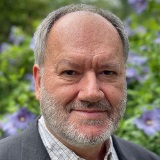
Dr. Leberer received his Ph.D. in Biology at the University of Konstanz, Germany (1986), and conducted post-doctoral training in molecular biology at the Banting and Best Institute of the University of Toronto, Canada. He then obtained the Habilitation for Professor of Biochemistry at the University of Konstanz, Germany (1992). From 1989-1998, he served as Senior Research Officer in genetics and genomics at the Biotechnology Research Institute, National Research Council of Canada, Montreal. He was also Adjunct Professor at McGill University, Montreal. Since joining the pharmaceutical industry in 1998, Dr. Leberer carried out various managing roles in Hoechst Marion Roussel, Aventis and Sanofi, including responsibilities in functional genomics, biological sciences, alliance management and external innovation for oligonucleotide-based therapeutics. In addition, from 2012-2018, he has been the Scientific Managing Director of the Innovative Medicines Initiative COMPACT Consortium on the delivery of biopharmaceuticals across biological barriers and cellular membranes, Brussels. Since March 2021, Dr. Leberer is Senior Life Sciences Consultant at ELBIOCON (www.elbiocon.com). He serves as a member in Scientific Advisory Boards of several biotechnology companies, and he is the Head of the Supervisory Board of BioM, Munich. His research has focused on the molecular mechanisms of signal transduction and the role of signalling molecules in human diseases. He is the co-discoverer of the p21 activated protein kinase (PAK) family of cell signalling proteins and of novel virulence-inducing genes in pathogenic fungi. He is co-author of more than 60 publications in prestigious peer-reviewed journals including Nature and Science.
Li Li, PhD, Assistant Professor, RNA Therapeutics Institute, University of Massachusetts Chan Medical School

Li Li obtained his B.Sc. degree in Biology in 2007 from Fudan University in Shanghai, China. He moved to the University of Illinois at Urbana-Champaign and received a PhD in 2012. He then moved to Professor Jack Szostak’s lab at Massachusetts General Hospital for postdoctoral studies, where he developed an efficient chemical method to copy RNA sequences. In 2020, Li started his independent group at the RNA Therapeutics Institute at UMass Medical School.
Zifan Li, PhD, Senior Scientist, Analytical Development, Biogen

Dr. Li received his Ph.D. degree from Washington University in St. Louis. Afterwards, he worked for multiple employers, focusing on analytical chemistry, biosimilar and oligonucleotides. He is currently a senior scientist in ASO analytical development group at Biogen. Prior to that, he was a senior research scientist at Nitto Avecia.
Paolo Lusso, MD, PhD, Chief, Senior Investigator, Viral Pathogenesis Section, NIAID, NIH

Dr. Lusso received his MD, summa cum laude, from the University of Turin and his PhD from the Ministry of Scientific and Technologic Research, Rome, Italy. He is board-certified in Internal Medicine and in Infectious Diseases. After a post-doctoral period at the National Cancer Institute in Bethesda, in 1995 he became the Chief of the Laboratory of Human Virology at the San Raffaele Institute in Milan, Italy, and Professor of Infectious Diseases. In 2006, he returned to the NIH in Bethesda, where he became the Chief of the Viral Pathogenesis Section in the Laboratory of Immunoregulation. He is an elected member or the European Molecular Biology Organization (EMBO) and a Fellow of the American Academy of Microbiology (AAM). His major scientific accomplishments include the discovery of the chemokine trio that naturally block HIV-1 (ie, RANTES, MIP-1? and MIP-1?), the identification of the cellular receptor for the herpesvirus HHV-6, and the discovery of a second CD4-binding site in the HIV-1 envelope. His current research interests include the structure-function relations in the HIV-1 envelope and the development of innovative mRNA-based vaccines against HIV-1 and COVID-19.
Ajit Magadum, PhD, Associate Scientist, Lewis Katz School of Medicine, Temple University

Dr. Ajit Magadum, Ph.D., is a Distinguished Research Fellow at Department of Cardiovascular Sciences at Temple University in Philadelphia, USA. He received his Ph.D. from the Max Planck Institute for Heart and Lung Research, Germany. During his postdoctoral tenure at Mount Sinai in New York, Ajit delved into the innovative realm of modified mRNA (modRNA) as a potent gene therapy tool for combating cardiovascular and metabolic diseases (CVMD). He made significant strides in designing modRNA delivery systems tailored for the cardiovascular system, employing various carriers, to ensure robust and enduring modRNA expression within cardiac tissues. Ajit's groundbreaking work unveiled a treasure trove of novel genes (6 targets), delivered as modRNA to the heart, inducing cardiomyocyte proliferation and cardiac regeneration, inhibiting cardiac hypertrophy and fibrosis offering promising avenues for treating CVMD and fibrotic conditions. Ajit is celebrated for pioneering the development of cell-specific mRNA delivery platforms known as SMARTs (Specific Modified mRNA Translation System) in the context of CVD in 2016. This innovation allowed for the precise targeting of modRNA expression exclusively in cardiomyocytes or non-cardiomyocytes within the heart, opening up new horizons for cell-specific mRNA therapeutics in the realm of CVMD. He has published over 20 papers, along with the successful filing of 3 patents, which have been licensed and sublicensed to leading biotechnology companies. He won the Outstanding Research Innovation Award from Mount Sinai Hospital, New York, in 2017 for his contributions to mRNA therapeutics development for CVMD. Ajit received the esteemed ISHR-NAS Young Investigator Award (YICA, runner-up) in 2022 and the prestigious Melvin L. Marcus Early Career Investigator Award from the American Heart Association (AHA) in 2022. At present, Ajit's research endeavors continue to revolve around leveraging modRNA and cell-specific modRNA as innovative therapeutic modalities to target CVMD.
Harris Makatsoris, PhD, Professor, Sustainable Manufacturing Systems, Kings College London

Harris is Professor of Manufacturing Systems in the Department of Engineering at King’s College London. He has a process engineering background with 20-years work experience in both industry and academia. In all his past and present roles he is managing interdisciplinary projects that require integration and coordination. Harris is an expert in continuous RNA manufacturing. His work is focusing on addressing the challenges in the rapid design, development and scalable manufacture of RNA and other nucleic acids and has pioneered the application of flow technologies in RNA manufacture, of various types. His research portfolio has attracted over £25m over the last 10 years and he is currently leading a unique multi-disciplinary, multi-million pound programme comprising both industry and academia, building the Biofoundry-in-a-Box (BiaB). The BiaB is a unique portable, multi purpose RNA microfactory designed for the rapid design and deployment of a range of therapeutics and vaccines, with Low and Middle Income Countries in mind. He has several patents in his name in the space of RNA manufacture and continuous bioprocessing and is highly experienced in technology transfer to industry through a variety of commercial routes.
Mano Manoharan, PhD, Distinguished Scientist & Senior Vice President, Innovation Chemistry, Alnylam Pharmaceuticals

Muthiah Manoharan, PhD. Dr. Muthiah (Mano) Manoharan serves as a Senior Vice President of Drug Innovation, a Scientific Advisory Board Member, and a Distinguished Research Scientist at Alnylam Pharmaceuticals, Cambridge, Massachusetts, USA. In 2003, he was the first chemist hired at Alnylam. He and his team pioneered the discovery and development of the chemical modifications, GalNAc conjugation chemistry, and LNP delivery platform that make RNA interference-based human therapeutics possible. This work led to the approval of four RNAi therapeutics: ONPATTRO® (patisiran, 2018), GIVLAARI® (givosiran, 2019), OXLUMO® (lumasiran, 2020) and Lequio® (inclisiran, 2020). Dr. Manoharan has had a distinguished career as a world-leading chemist in the field of oligonucleotides. He is an author of more than 225 publications (nearly 50,000 Google Scholar citations with an h-index of 101 and an i10-index of 399) and over 400 abstracts, as well as an inventor of over 250 issued U.S. patents. Prior to Alnylam, Dr. Manoharan worked in the field of antisense oligonucleotide therapeutics at Ionis (formerly Isis) Pharmaceuticals and LifeCodes Corporation (1988-1990) . Dr. Manoharan received his B.Sc. and M.Sc. degrees in chemistry at the American College, Madurai, India. He earned his Ph.D. in chemistry (with Professor Ernest L. Eliel) at the University of North Carolina, Chapel Hill and carried out post-doctoral research (with Professor John A.Gerlt) in the field of oligonucleotide chemistry at Yale University and at the University of Maryland. Dr. Manoharan is the winner of the Lifetime Achievement Award of the Oligonucleotide Therapeutics Society (2019), the M. L. Wolfrom Award from the American Chemical Society (2007) and D. Horton Industrial Carbohydrate Chemistry Award from the American Chemical Society (2021).
Carolyn Mazzitelli, PhD, Director, Analytical Development & Quality Control, Ionis Pharmaceuticals

Dr. Mazzitelli is a Director in the Analytical Development & Quality Control department at Ionis Pharmaceuticals. She leads a team responsible for the analytical activities of oligonucleotides in all phases of development. Prior to joining Ionis, she worked at Dart NeuroScience, Gilead Sciences, and Vertex Pharmaceuticals where she was responsible for the analytical development of small molecule drug substances and drug products. Her areas of expertise include method development, validation, stability testing, establishing specifications, authoring regulatory submissions, and supporting commercial product launches. She earned her B.S. in Chemistry from the University of North Carolina at Chapel Hill and Ph.D. in Chemistry from the University of Texas at Austin.
Thomas McCauley, PhD, CSO, Omega Therapeutics, Inc.

Dr. Thomas McCauley joined Omega Therapeutics as Chief Scientific Officer in August 2019. Prior to Omega, he served as CSO at Zikani Therapeutics (formerly Macrolide Pharmaceuticals) and before that at Translate Bio (formerly RaNA Therapeutics). In these roles, Dr. McCauley was responsible for overall scientific vision, strategic direction and leadership of research and development. He provided scientific, technical and operational oversight for advancement of the company’s oligo, mRNA and novel macrocyclic technology platforms and management of portfolio therapeutic programs in pulmonary, metabolic, genetic and infectious disease. Previously, Dr. McCauley served as Vice President and Head of Global Nonclinical Development at Shire Pharmaceuticals, where he made significant contributions to the development and global approvals of many of Shire's products, including Replagal® for Fabry disease, Vpriv® for Gaucher disease, Elaprase® for Hunter syndrome, Firazyr® for hereditary angioedema and Xiidra® for dry eye disease. Dr. McCauley has more than 20 years of experience in the biotechnology and pharmaceutical industries and has authored more than 40 scientific publications, book chapters and patents. He holds undergraduate and graduate degrees from Cornell University and received his Ph.D. from the University of Alabama at Birmingham.
Matthew McQueen, Associate Director, Analytical Development, Avidity Biosciences

Matthew McQueen has worked in analytical development for over 15 years, with experience in biologics, oligonucleotides, and small molecule drugs. He is currently Associate Director of Analytical Development at Avidity Biosciences, where he has been since 2021. At Avidity Biosciences, Matthew is responsible for assay development, qualification, and characterization of antibody oligonucleotide conjugates. Before Avidity, he worked at Coherus Biosciences and contributed to the approval of two biosimilar products. Matthew holds an MS in Bioscience Regulatory Affairs from Johns Hopkins and a BS in Forensic Chemistry from the University of Central Florida.
Kevork Oliver Messerian, Graduate Research Assistant, Penn State University

Highly motivated PhD candidate in Chemical Engineering with a strong interest in membrane technology and bioprocessing. His research focuses on the sterile filtration of mRNA vaccines and therapeutics, characterizing lipid nanoparticle structures, and studying their pressure-dependent fouling behavior.
Michael Mitchell, PhD, Skirkanich Assistant Professor of Innovation, Department of Bioengineering, University of Pennsylvania

Michael J. Mitchell is the Skirkanich Assistant Professor of Innovation in the Department of Bioengineering at the University of Pennsylvania. He received a BE in Biomedical Engineering from Stevens Institute of Technology in 2009, a PhD in Biomedical Engineering with Prof. Michael King from Cornell University in 2014. He was a Postdoctoral Fellow in Chemical Engineering with Prof. Robert Langer at MIT from 2014-2017, prior to pursuing his independent career at University of Pennsylvania. The Mitchell lab’s research broadly lies at the interface of biomaterials science, drug delivery, and cellular and molecular bioengineering to fundamentally understand and therapeutically target biological barriers. Specifically, his lab engineers new lipid and polymeric nanoparticle platforms for the delivery of different nucleic acid modalities to target cells and tissues across the body. His lab applies their research findings and the technologies developed to a range of human health applications, including the engineering of CAR T cells for cancer immunotherapy, mRNA vaccines, genome editing, cardiovascular disease, and in utero therapeutics to treat disease before birth. Mitchell has received numerous awards as an independent investigator, including the National Institutes of Health Director’s New Innovator Award, the Rising Star Award from the Biomedical Engineering Society, and the Career Award at the Scientific Interface from the Burroughs Wellcome Fund. In 2022 Mitchell was named “Emerging Inventor for the Year” by Penn’s for Innovation in recognition for his lipid nanoparticle technologies and received the Young Investigator Award from the Society for Biomaterials, the T. Nagai Award from the Controlled Release Society, and the National Science Foundation CAREER Award.
Aaron Moss, PhD, Senior Director, Pharmacokinetics and Pharmacodynamics, Avidity Biosciences

Dr. Moss received his PhD in Pharmaceutics from the University of Washington, Seattle, studying the pharmacokinetic impact of nucleoside transporters on nucleoside drugs. Aaron went on to work in clinical pharmacology at Seattle Genetics, where he established many of the ADME principles governing the delivery of cytotoxic payloads conjugated to antibodies. Aaron then joined the Translational Modeling and Simulation group within DMPK at Abbvie, leading the preclinical to clinical translation of the immuno-oncology biologics portfolio from a PKPD perspective. Dr. Moss subsequently worked as a consultant for Certara as an expert in the preclinical development of complex biologics, as well as leading the PK function at Audentes Therapeutics. Currently, he is Sr. Director of Pharmacokinetics and Pharmacodynamics at Avidity Biosciences.
Prashant Nambiar, DVM, PhD, MBA, Senior Vice President, R&D, Strand Therapeutics

Prashant Nambiar is Senior Vice President of R&D at Strand Therapeutics where he is leading Discovery, Nonclinical, Translational, and Data Science. Prior to Strand, Prashant was Vice President at 2seventybio and bluebird bio leading the preclinical and translational group developing cell and gene therapies for oncology and rare disease indications. Prashant started his career in academia at MIT followed by 18+ years in biotech and pharma including Genzyme, Pfizer, bluebird bio and 2seventybio. He has worked on various modalities such as small molecules, biologics, AAV, cell and gene editing therapies at various stages of development including discovery, target selection, preclinical development, and beyond. His expertise is in Translational Biology, Pathology, and Toxicology with a focus on bringing transformative therapies from bench to the clinic and beyond. He is passionate about leveraging data in drug R&D and had built a data operations team at Pfizer to execute on that strategy. Prashant’s PhD is in cancer biology, specifically understanding the molecular pathogenesis of precancerous lesions in the colon. He has board certifications in Toxicology and Veterinary Pathology. He also has an MBA from Sloan School of Business, MIT.
Emily Noonan Place, PhD, Senior Consultant, Biologics Consulting

Emily is currently a Senior Consultant at Biologics Consulting. She recently made a transition from working as a pharmacology/toxicology reviewer at the FDA in CDER’s Office of Oncologic Diseases for over 8 years. At FDA, she worked on a team that supported a division reviewing applications in benign heme and hematological malignancies, and also on a team in a division reviewing applications in solid tumors. During her time at the FDA co-chaired a Pharmacology/Toxicology Subcommittee for Oligonucleotide Therapeutics on which she performed consults, provided education, developed internal practice, and oversaw the safety and activity of drug applications for Oligonucleotide Therapeutics in all of the therapeutic divisions across the Office of New Drugs. Emily received a bachelor’s in science in Biology from State University of New York at Binghamton, her PhD in Cell Biology from University of Connecticut, and an MPH in Epidemiology at the University of California at Berkeley. Following her PhD, she was an Associate Investigator at San Francisco VA Medical Center from 2007-2009 where her research focused on miRNA dysregulation in prostate cancer. She completed a postdoctoral fellowship at Stanford School of Medicine testing chemotherapeutics in a translational model of NHL and was a Cancer Prevention Fellow at the National Cancer Institute in the Laboratory of Human Carcinogenesis where her research involved examining the role of extracellular plant small RNA communication in human carcinogenesis. Her research has culminated in several publications in peer-reviewed journals and book chapters. She is also currently Faculty at the University of California at Berkeley, School of Public Health, in the Division of Biostatistics and teaches Biostatistics in the master’s in public program.
Brian Pack, PhD, Executive Director, Eli Lilly and Company

Brian W. Pack, PhD is an Executive Director in Synthetic Molecule Design and Development at Eli Lilly and Company, Indianapolis, IN. He received his PhD in analytical chemistry from Indiana University in 1997 and joined Eli Lilly in 2001. While at Lilly, he has been responsible for the analytical control strategy of many solid oral and parenteral dosage forms from early phase to commercial products, and has contributed to many regulatory submissions. He has published on diverse technical and regulatory issues ranging from HPLC method development, cleaning validation, dissolution, colorimetry, to genotoxic impurity control strategies. He led the commercial development of a nasally delivered peptide for severe hypoglycemia and is now responsible for control strategy development for oligonucleotide modalities.
Hamideh Parhiz, PharmD, PhD, Research Assistant Professor, Infectious Diseases, University of Pennsylvania

Hamideh Parhiz, PharmD, Ph.D. is a Research Assistant Professor in the Perelman School of Medicine at the University of Pennsylvania where she leads the targeted LNP delivery program. Her expertise is developing novel nucleic acid delivery systems including a new generation of targeted LNP-mRNA therapeutics for a variety of non-vaccine applications such as blood gene disorders, cancer, fibrosis, and acute inflammatory conditions. Hamideh’s work has resulted in the publication of more than 40 papers including two papers in Science magazine and several patents. Her work in designing an efficient targeted LNP-mRNA platform is now the basis for industrial product developments as well as academic programs.
June Park, PhD, CEO, siRNAgen Therapeutics

June Park serves as the CEO of siRNAgen Therapeutics, a clinical-stage platform biotech specializing in RNAi therapeutics for immunology and CNS conditions. Prior to siRNAgen, June served as a healthcare consultant at Putnam Associates, providing commercial and product development strategies to global biopharmaceutical companies on oncology and rare disease portfolios throughout their product life cycles. A Gates Scholar, June began her academic journey at MIT, where she made notable strides in RNAi delivery technologies at the Langer Lab and later, at the University of Cambridge, pioneered innovative supramolecular biomaterials. A first time CEO and a Class of 2023 Termeer Fellow, June is a passionate advocate of patient-centric healthcare and equal opportunities. She holds a B.S. in Chemical and Biological Engineering with minor in Biology and Music Performance from MIT and a Ph.D. in Chemistry from the University of Cambridge.
Dan Peer, PhD, Professor & Chair, Cancer Biology Research Center, Laboratory of Precision Nanomedicine, Tel Aviv University

Dan Peer is a Professor and the Director of the Laboratory of Precision NanoMedicine at Tel Aviv University (TAU). He is also the Vice President for Research and Development at Tel Aviv University. From 2017 - Present, he is the Founding and Managing Director of the SPARK program of Translational Medicine at TAU. Prof. Peer’s work was among the first to demonstrate systemic delivery of RNA molecules using targeted nanocarriers to the immune system and he pioneered the use of RNA interference (RNAi) in immune cells. His lab was the first to show systemic, cell specific delivery of modified mRNA in an animal to induce therapeutic gene expression of desired proteins. This has enormous implications in cancer, inflammation and infection diseases (e.g. COVID 19 mRNA vaccines). In addition, his lab was the first to show high efficiency, systemic, cell specific therapeutic genome editing in cancer. Prof. Peer has more than 130 pending and granted patents. Some of them have been licensed to several pharmaceutical companies and one is currently under registration (as a new biological drug in Inflammatory Bowel Disease). In addition, based on his work, five spin-off companies were generated aiming to bring innovative personalized medicine into clinical practice. Prof. Peer received more than 30 awards and honors and he serves on the scientific advisory board and as Board Member of more than 15 companies, and on the editorial board of more than 20 journals. In 2014, he was elected to the Israel Young Academy and in 2023 he was elected to the US National Academy of Engineers (NAE).
Leo Ziqing Qian, PhD, Co-Founder & Vice President, Discovery Research, Entrada Therapeutics

Ziqing “Leo” Qian, Ph.D. is co-founder and Vice President, Discovery Research at Entrada Therapeutics, a Boston-based biotechnology company dedicated to transforming the treatment of devastating diseases using intracellular biologics. Leo co-invented Entrada’s Endosomal Escape Vehicle (EEV) technology, which is applied to the design and development of intracellular delivery of otherwise impermeable biological cargos, including oligonucleotides, peptides, and proteins. Leo obtained his PhD in organic chemistry from Ohio State University. He has co-authored over 30 peer-reviewed publications and two book chapters, as well as co-inventor on over 10 patents.
Roumen Radinov, PhD, Vice President, Process Sciences, Alnylam Pharmaceuticals

Roumen Radinov received his Ph.D. in organic chemistry from Sofia University, Bulgaria. Following postdoctoral studies in enantioselective methodology and asymmetric synthesis at the University of Geneva, Duke and Stanford, he joined the Roche Chemical Synthesis Department in 1997 where he has developed and scaled up the syntheses of multiple drug candidates, including oligonucleotide drug substance and excipients for the Roche siRNA program. In 2012 he joined Alnylam Pharmaceuticals where he is currently Vice President, Process Sciences leading drug product development and process development of custom starting materials, excipients, and novel technologies for oligonucleotide manufacture.
Baley Reeves, PhD, Interim Director, National Center for Therapeutics Manufacturing (NCTM)

Baley Reeves was appointed interim director in 2023 and currently leads NCTM’s mRNA project initiatives. She has over 15 years of experience in downstream processing and over 11 years of experience in biomanufacturing workforce training, and has expertise in the recovery and purification of recombinant proteins, vaccines, and gene therapy products, as well as experience in cGMP manufacturing and process development. Prior to joining NCTM, Baley was a senior scientist at the Biomanufacturing Training and Education Center (BTEC), where she developed and taught courses for biotech industry leaders, regulatory agencies, and the WHO. She has also worked on numerous vaccine-related projects, including a global survey of the vaccine manufacturing landscape with the Bill and Melinda Gates Foundation. Baley holds a Ph.D. in chemical engineering from Princeton University, where she was a National Science Foundation Graduate Fellow. She has authored articles on protein purification in Trends in Biotechnology, Protein Science, Protein Expression and Purification, and Microbial Cell Factories, as well as articles on biomanufacturing training and education published in Chemical Engineering Education.
Laura Sepp-Lorenzino, PhD, CSO, Intellia Therapeutics
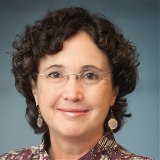
Laura Sepp-Lorenzino oversees all platform and pipeline research activities across in vivo and ex vivo (engineered cell therapy) areas as Intellia’s Chief Scientific Officer. Before joining Intellia, she was vice president, Head of Nucleic Acid Therapies, Research, and member of the External Innovation team at Vertex Pharmaceuticals, Inc. She also served as vice president, entrepreneur-in-residence at Alnylam Pharmaceuticals, Inc., a leader in the development of RNAi Therapeutics. At Alnylam, she was responsible for the Hepatic Infectious Disease Strategic Therapeutic Area, championed extra hepatic siRNA delivery, and was active in licensing and partnering. Laura spent 14 years at Merck & Co., most recently having served as executive director and department head, RNA Therapeutics Discovery Biology. In this role, she was responsible for identification and optimization of siRNAs and delivery vehicles, advancement of preclinical candidates, and development of an siRNA-conjugate platform to expand the repertoire of tissues accessible to in vivo siRNA delivery. Laura also has expertise in oncology drug discovery and development acquired earlier in her career by leading the Cancer Research Department at Merck West Point and working as an assistant lab member and assistant attending molecular biologist at Memorial Sloan-Kettering Cancer Center. She received her professional degree in Biochemistry from the University of Buenos Aires, Argentina and both her MS and PhD in Biochemistry from New York University. Laura holds professional affiliations with key scientific organizations, including the Oligonucleotide Therapeutics Society, the American Society for Gene and Cell Therapy, the European Society of Gene and Cell Therapy, and the New York Academy of Sciences, as well as a number of oncology societies. She also sits on the scientific advisory board of Thermo Fisher Scientific, Lodo Therapeutics, the U.K. Nucleic Acid Therapy Accelerator and is a member of Taysha Gene Therapies’ board of directors.
Chikdu Shivalila, PhD, Director, Biology Wave Life Sciences, Inc.

Chikdu Shivalila works as a Director of Platform Biology at Wave Life Sciences where he focuses on ADAR-mediated editing technologies, as well as splicing oligonucleotides, emerging technologies, and RNA biology. He completed his PhD in Biology from Massachusetts Institute of Technology, with a focus on genetic engineering, stem cell biology, and synthetic biology.
Kuldeep Singh, PhD, Senior Director & Head Pathology, Wave Life Sciences Inc.

Kuldeep Singh is currently the Head of Pathology at Wave Life Sciences. He obtained his BVSc (Bachelor of Veterinary Sciences) from G.B. Pant University of Agriculture and Technology in India, MS from Utrecht University, The Netherlands, and PhD and residency in anatomic pathology from Oklahoma State University. He joined the American College of Veterinary Pathologists as a diplomate in 2009. Prior to joining Wave Life Sciences, he worked as an Investigative Pathologist at Sanofi and as a Director of Toxicologic Pathology at WuXiApptech. He served the University of Illinois as Head of Anatomic Pathology and Clinical Associate Professor in the College of Veterinary Medicine, Urbana-Champaign. His professional interests include oligonucleotides, toxicology, biomarker identification, safety assessment, animal model characterization, and investigative and digital pathology. Kuldeep has authored or co-authored more than 55 peer-reviewed articles, book chapters, and more than 75 abstracts and posters. He is currently an ad hoc reviewer for 14 journals. Kuldeep has presented at multiple national and international conferences as an invited speaker. He is a primary or co-investigator on 2 patents (application filed) based on oligonucleotides.
Jeske Smink, PhD, Head of Drug Substance, Manufacturing, Silence Therapeutics

Jeske is a biologist with over 18 years of experience in the biotech industry and academic research. She has expertise in CMC aspects in different areas, including cell therapies, biologics, and siRNAs. After 7 years in academic research focusing on molecular mechanisms in bone development and diseases, she moved to co.don AG as Head of Scientific Affairs in 2012. Here her work focused on preclinical development and quality aspects of cartilage cell transplants. Following, she joined ProBioGen as CMC project leader, where she was overseeing customer projects, focusing on process development, scale-up and large scale GMP manufacturing of biologics. In 2020, Jeske joined Silence Therapeutics as Head of Drug Substance overseeing CMC development, including process and analytical development, scale-up and clinical product manufacturing of siRNA compounds.
Lori Troup, Director, Analytical Development, Dicerna Pharmaceuticals

Lori is the Director of Analytical Development for Dicerna Pharmaceuticals, a Novo Nordisk company, where her team is responsible for method development and validation activities for custom starting materials, drug substance and drug product, as well as drug substance characterization, drug substance and drug product release and stability studies, and CMC regulatory authoring. Prior to joining Dicerna in 2018, Lori spent 12 years at Agilent Technologies in a number of different roles within Quality Control, Analytical Development, and Analytical Services. Lori holds a B.S. in Chemistry from Abilene Christian University.
Chandra Vargeese, PhD, CTO & Head, Platform Discovery Sciences, Wave Life Sciences

Dr. Vargeese is one of the industry’s leading oligonucleotide chemists with approximately 30 years of oligonucleotide research experience, authoring numerous scientific publications and patents in the field. Dr. Vargeese joined Wave Life Sciences in 2014 and was named Chief Technology Officer in 2020. She is responsible for the advancement of Wave’s PRISMTM platform, which is foundational to all of Wave’s drug discovery and development efforts. Before joining Wave, Dr. Vargeese served as Executive Director of Chemistry and Delivery, RNA Therapeutics Division at Novartis. She led siRNA delivery as Senior Director in the RNA Therapeutics division at Merck. She joined Merck through its $1.1 billion acquisition of Sirna Therapeutics, where she was Vice President of Chemistry. Dr. Vargeese served as Associate Director of Chemistry at NeXstar Pharmaceuticals and is the co-inventor of Macugen (pegaptanib), an approved therapy for wet AMD. She earned a PhD in organic chemistry at the Indian Institute of Science, Bangalore, India, and completed post-doctoral work at the University of Rhode Island.
Xiao Wang, PhD, Assistant Professor, Department of Chemistry, Broad Institute of MIT and Harvard

Xiao Wang is a core institute member of the Broad Institute of MIT and Harvard and an assistant professor in the Department of Chemistry at MIT. She started her lab in 2019 to develop and apply new chemical, biophysical, and genomic tools to better understand and tune tissue function at the molecular level. Wang joined the MIT and Broad after conducting postdoctoral research at Stanford University. She received her B.S. in chemistry and molecular engineering from Peking University in 2010 and her Ph.D. in chemistry from the University of Chicago in 2015.
Mike Webb, PhD, Founder and CEO, Mike Webb Pharma; Former Vice President, API Chemistry & Analysis, GSK
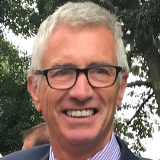
Mike received his PhD from imperial college in London. He spent most of his career at GSK and its legacy companies primarily as an analytical scientist and then becoming the Vice President of Development Chemistry and Analysis for GSK in the UK. He was heavily involved in establishing initial GSK’s oligonucleotide CMC development efforts. Mike has edited 3 books on the analysis of pharmaceuticals, including one on the analysis of oligonucleotides. Since leaving GSK in 2016, he has been consulting with Big Pharma and Biotechnology companies in the development, analysis and manufacture of therapeutic oligonucleotides from pre-clinical to marketing submission.
Ron Weiss, PhD, Professor, Biological Engineering, Massachusetts Institute of Technology

Ron Weiss is Professor in the Department of Biological Engineering and in the Department of Electrical Engineering and Computer Science at the Massachusetts Institute of Technology, and is the Director of the Synthetic Biology Center at MIT. Professor Weiss is one of the pioneers of synthetic biology. He has been engaged in synthetic biology research since 1996 when he was a graduate student at MIT and where he helped set up a wet-lab in the Electrical Engineering and Computer Science Department. After completion of his PhD, Weiss joined the faculty at Princeton University, and then returned to MIT in 2009 to take on a faculty position in the Department of Biological Engineering and the Department of Electrical Engineering and Computer Science. The research pursued by Weiss since those early days has placed him in a position of leadership in the field, as evidenced both by publications from his lab as well as a variety of awards and other forms of recognition. He pursued several aspects of synthetic biology, including synthesis of gene networks engineered to perform in vivo analog and digital logic computation. The Weiss lab also published seminal papers in synthetic biology focused on programming cell aggregates to perform coordinated tasks using engineered cell-cell communication with chemical diffusion mechanisms such as quorum sensing. Several of these manuscripts were featured in a recent Nature special collection of a select number of synthetic biology papers reflecting on the first 10 years of synthetic biology. While work in the Weiss lab began mostly with prokaryotes, during the last 5 years a majority of the research in the lab shifted to mammalian synthetic biology. The lab focuses both on foundational research, e.g., creating general methods to improve our ability to engineering biological systems, as well as pursuing specific health related applications where synthetic biology provides unique capabilities.http://groups.csail.mit.edu/synbio/
Yingxia Wen, PhD, Executive Director, Head, Discovery Research and Research Strategy, Seqirus

Yingxia Wen is Executive Director, Head of Discovery Research and Research Strategy in CSL R&D based at Waltham MA. Yingxia leads Discovery Research team on vaccine innovation, and Research strategy through internal and external approaches. Previously, Yingxia held positions of increasing responsibility in Novartis Vaccines leading the development of influenza, HIV, RSV and CMV vaccines, and Wyeth/Pfizer leading structure-based drug development. Yingxia holds a BS in Biology from Tsinghua University in China and a PhD in Biochemistry from Rutgers University in New Jersey and completed her post-doctoral fellowship at Harvard University.
Jim Weterings, PhD, Vice President Research, RNA Therapeutics & Delivery, Sirnaomics

Jimmy Weterings, PhD, is Senior Director, Head of Technology Development at Sirnaomics, USA. Jimmy has had a tight bond with oligonucleotides since 2002, performing research on PNA (conjugates) in the van Boom group at Leiden University, the Netherlands, and targeted SSO conjugates at Prosensa. During his PhD at Leiden University he synthesized and studied CpG oligonucleotide and other TLR ligand-containing conjugates. At Cenix BioScience, he developed targeted siRNA conjugates for CNS delivery. And at Cristal Therapeutics he led various projects on the (targeted) nanomedicine delivery of oligonucleotides in oncology. In 2019 he joined AstraZeneca in Sweden, to further the advancement of (targeted) oligonucleotide therapeutics. In December, 2022, Jimmy joined Sirnaomics in the USA as Senior Director, designing novel oligonucleotide chemistries and targeted versions thereof. He now leads RNA therapeutics & delivery efforts as Vice President Research. Jimmy (co-)authored 13 articles and holds several patents for drug delivery-enabling technologies, including the most recent one on TMTHSI, ClicR exclusively licensed to Synaffix and commercially available for R&D purposes.
Tod Woolf, PhD, Executive Director of Technology Ventures, Beth Israel Deaconess Medical Center; Co-Founder, ETAGEN Pharma

Tod Woolf leads the Technology Ventures Office at Beth Israel Deaconess Medical Center where he is a Lecturer at Harvard Medical School and co-founded ETAGEN in 2014. His team demonstrated the first BASE Editing (PNAS 1995). He was co-founder and CEO of Sequitur in 1996 where they developed NextGen Antisense, STEALTH RNAi, and MOD mRNA Therapeutics and vaccines in 1997. His team at ETAGEN developed Donor-Guides for CRISPR and single oligo genome editing technology that does not require programmable nucleases.
Ken Yamada, PhD, Assistant Professor, RNA Therapeutics Institute, University of Massachusetts Medical School

Dr. Ken Yamada earned his BS, MS, and PhD (2011) at Tokyo Institute of Technology, Japan. His academic life with nucleic acid chemistry started when he was a PhD student in Prof. Mitsuo Sekine’s lab, where he cultivated his discipline as a nucleic acid chemist. After his career path led to a postdoctoral position in Prof. Masad Damha’s lab at McGill University (2012-2014) and an assistant professor position in Prof. Fumi Nagatsugi’s lab at Tohoku University (2014-2017), he joined Prof. Anastasia Khvorova’s lab to explore his potential as a chemist to contribute to the oligonucleotide therapeutics field. In the dynamic research culture of the Khvorova Lab, Ken has been pursuing transformative therapeutic RNA backbone chemistry that broadly impacts the oligonucleotide-based therapeutics research field. He currently holds Assistant Professor position in RNA Therapeutics Institute at UMass Medical School (2021-current) and is investigating new chemical modalities for oligonucleotide-based therapeutics.
Tsuyoshi Yamamoto, PhD, Associate Professor, Director, Liid Pharma, Nagasaki University

Dr. Yamamoto obtained his degree from the Graduate School of Pharmaceutical Sciences at Osaka University in 2012, under the mentorship of Professor Satoshi Obika. After graduating, he became an Assistant Professor of the Obika Lab. In 2015, Dr. Yamamoto broadened his research experience by joining the Martin Schnermann Laboratory at the National Institute of Health in the U.S. In 2018, he was appointed as an Associate Professor at the Graduate School of Biomedical Sciences at Nagasaki University, , working in Professor Asako Yamayoshi's Lab. Beyond his academic pursuits, Dr. Yamamoto is also involved in the clinical application development at Liid Pharmaceuticals Inc., an oligo drug startup that emerged from the National Cerebral and Cardiovascular Center in Japan.
Yujian Frank Zhang, PhD, CEO, Belem Therapeutics

Dr. Zhang has worked in the pharmaceutical field for more than 20 years. He has held key positions at NIH, Otsuka, BeneVir, and GSK. Most recently, he served as the SVP/EVP of StemiRNA Therapeutics, overseeing the development effort of mRNA platform. He spearheaded the development of the COVID-19 mRNA vaccine SW-BIC-213, which received Emergency Use Authorization (EUA) as the world's first tissue-specific vaccine. He also played a pivotal role in establishing mass production solutions for mRNA vaccines (plasmid, mRNA DS and DP) and built a significant manufacturing facility capable of producing 0.4-2 billion doses per year. He is also instrumental in developing numerous other molecules such as Lumoxiti, RG7787, personalized cancer vaccine, etc. He has helped the business raise more than $200 million USD so far.
2024年 会议
方案
